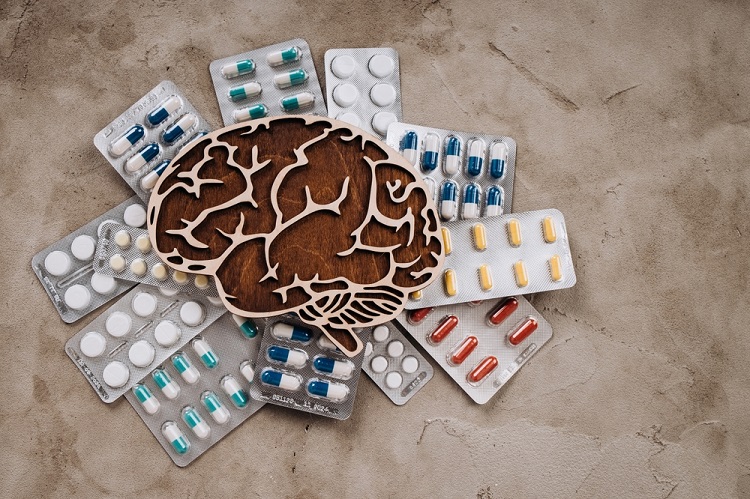News& Information
-
Medical Trends
 Home -> News& Information -> Medical Trends
Home -> News& Information -> Medical Trends
"Lecanemab" -The Light of Hope for Alzheimer's Disease

This is a disease that gradually erodes our memory and cognitive ability, like an invisible eraser, erasing our precious memories bit by bit.
The journey of Alzheimer's Disease, AD
According to data from the World Health Organization (WHO), there are currently more than 55 million people suffering from Alzheimer's disease in the world. There are nearly 10 million new cases each year. It is estimated that by 2030, there will be about 78 million Alzheimer's patients in the world; by 2050, this number will increase to about 150 million.
Alzheimer's disease, also known as senile dementia, is a progressive neurodegenerative disease with an insidious onset. Patients mainly show comprehensive dementia manifestations such as memory impairment, aphasia, apraxia, agnosia, visual-spatial skill impairment, executive dysfunction, and personality and behavioral changes. As the disease progresses, the patient's memory and cognitive ability gradually decline, and the ability to take care of oneself also declines, which brings a heavy burden to the family and society.
Alzheimer's disease is one of the main causes of disability and dependence on others among the elderly worldwide.
Early symptoms

1. Short-term memory impairment. Patients may quickly forget recent events, often lose items, forgetting what they just said or completed.
2. Patients may experience a significant decline in learning ability, which is not only reflected in the process of mastering new knowledge but also includes the forgetting of information that has been learned. In addition, they will also encounter obstacles in constructing sentences, and the language logic is chaotic, causing their verbal expression to appear fragmented and difficult to understand by others.
3. Decreased social skills. In the early stage, patients may encounter difficulties in communicating with others and find it difficult to keep up with the rhythm of the conversation.
4. Disordered sleep cycle. Circadian rhythm disorder, no concept of time, inability to remember the date, and even confusion between day and night.
5. Mood swings and personality changes. Patients may experience unexplained mood swings, rapid mood changes, manifested as anxiety, depression, or indifference, and personality changes from extrovert to introvert, or from taciturn to talkative.
Treatment of Alzheimer's Disease

Alzheimer's disease is a progressive, irreversible neurodegenerative brain disease. In the past, treatment was mainly symptomatic. Even there's currently no cure for Alzheimer's disease, there are some medicines available that can temporarily reduce the symptoms:
1. Cholinesterase inhibitors
This type of drug mainly includes donepezil, rivastigmine, and galantamine. Their main function is to increase the level of acetylcholine in the brain, thereby improving the patient's cognitive function and daily living ability. This type of drug is suitable for patients with Alzheimer's disease and vascular dementia.
2. Excitatory amino acid receptor antagonists
Memantine is a representative of this type of drug. As an NMDA receptor antagonist, it can effectively block the neurotoxicity caused by glutamate. Memantine is particularly suitable for patients with moderate to severe Alzheimer's disease. It can not only help improve cognitive function but also relieve some behavioral symptoms.
Lecanemab The Dawn of Hope
On January 9, the official website of the National Medical Products Administration (NPA) released the latest news that the new drug submitted by Eisai, Lecanemab Injection, has been approved for marketing. The drug is expected to be launched in China around July 2024. Its indication is the treatment of early Alzheimer's disease.
Lecanemab, Chinese name: Leyibao, is a humanized monoclonal antibody against soluble beta-amyloid protein (AB).
Unlike the therapeutic drugs currently on the market, it is a drug specifically targeting the pathological mechanism of Alzheimer's disease, reducing its deposition in the brain by targeting beta-amyloid protein. This deposition is a key link in the pathological process of Alzheimer's disease and is closely related to neuronal death and cognitive decline.
A phase III trial covering 1,800 early AD patients showed that compared with the placebo group, patients treated with Lecanemab had a 27% slower decline in cognitive function during the 18-month observation period. This result brings more hope for the treatment of Alzheimer's disease.
How to face Alzheimer's Disease?

Facing the challenge of Alzheimer's disease, we need to start from multiple aspects.
First of all, it is very important to maintain a positive attitude. Although the disease is difficult to reverse, we can delay the progression of the disease through active treatment and rehabilitation training.
Secondly, the care and support of family members are also an important force for patients to overcome the disease. We should spend more time with AD patients, communicate with them more, and pay more attention to their needs.
Finally, we should also pay attention to prevention. Reduce the risk of disease through a healthy lifestyle, a balanced diet, and proper exercise.




